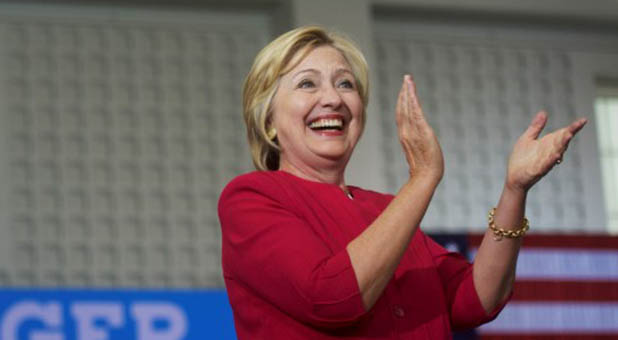How Hillary’s Campaign Falls Flat With Its Clinton Foundation Explanation
There is no denying that for the past two weeks—at least—Democratic presidential nominee Hillary Clinton’s campaign has been in a furious damage control mode over accusations about the apparent pay-to-play nature of the Bill, Hillary and Chelsea Clinton Foundation.
The campaign attempted Monday to allay fears that electing Clinton would result in a huge financial windfall for her family by saying the foundation would stop accepting donations if she were elected president. But there’s one very big problem with their proposed “solution”: it only addresses a very small portion of the funds funneling into their charitable causes.
As the Boston Globe—hardly a fan of Clinton’s Republican counterpart, Donald Trump—has reported, the largest arm of the Clinton Foundation, the Clinton Health Access Initiative, would continue to receive both corporate and foreign donations. As a result, the Clintons themselves could still stand to make hundreds of millions of dollars.
The Globe‘s Annie Linskey reports:
Big chunks of the Clinton family’s charitable network would be exempt from a self-imposed ban on foreign and corporate donations if Hillary Clinton wins the presidency, loopholes that highlight the complexity of disentangling her from the former first family’s myriad potential conflicts of interest.
The most prominent of the exceptions applies to the Boston-based Clinton Health Access Initiative, which in 2014 accounted for 66 percent of spending by the Clinton network of charities. The initiative’s board plans to meet “soon” to discuss whether to participate in the planned restrictions. Adhering to the policy announced by Bill Clinton on Thursday would starve the organization of much of its operating cash and could gut its work of combating the spread of HIV infections and malaria around the world.
At least two other Clinton-related charities also aren’t immediately affected by Thursday’s decision to limit donations.
They include the Alliance for a Healthier Generation, an entity co-founded by the American Heart Association and the Clinton Foundation, and the Clinton Giustra Enterprise Partnership, a joint venture between Bill Clinton and Canadian mining billionaire Frank Giustra.
Giustra is a central figure in many of the chapters of the book Clinton Cash: The Untold Story of How and Why Foreign Governments and Businesses Helped Make Bill and Hillary Rich. The book, written by Government Accountability Institute President Peter Schweizer, has since been made into a documentary film that you can watch in its entirety by clicking here.
Trump’s campaign issued the following statement in response to the report:
“The Clinton Foundation’s laughable attempt to address conflicts of interest fails to include many of its umbrella organizations like the Clinton Health Access Initiative, which alone represents nearly two-thirds of all foundation spending. The bottom line is that conflicts of interest with foreign governments and special interests would continue unabated in a Hillary Clinton administration under their insufficient and unacceptable proposal.”















































